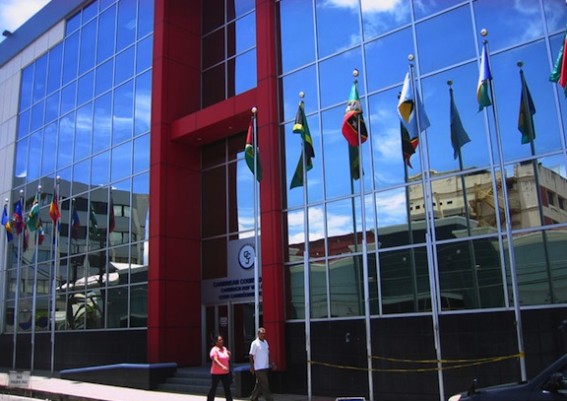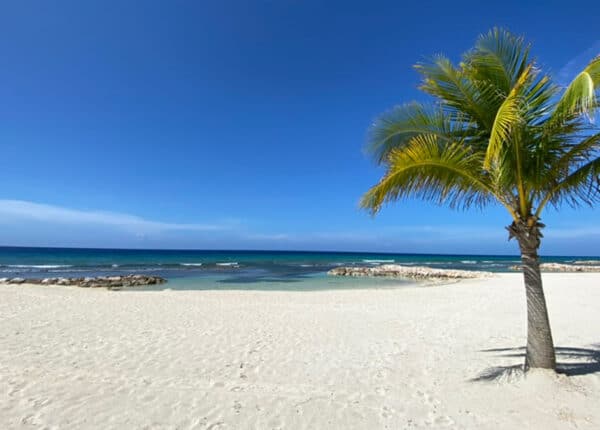By J. Emile Ferdinand, QC
Op-Ed Contributor
THE RECENT decision of the Privy Council granting an interim injunction, which forced the 2015 general election in St. Kitts and Nevis to be held on the existing old constituency boundaries, has been touted by some persons as a reason for not acceding to the appellate jurisdiction of the Caribbean Court of Justice (“CCJ”) at this time. As welcome and positive as that Privy Council decision is, it provides no such reason. Indeed, that decision ought to be regarded as supporting the argument in favour of moving to embrace the CCJ’s appellate jurisdiction without further delay.
First and foremost, the Privy Council’s decision shows the importance of having access to a third and final tier of judicial adjudication. By its ruling, the Privy Council determined that the last decisions by the High Court and the Court of Appeal (refusing the requested injunction) were wrong decisions which did not fit the justice of the case. Without access to such a second level of appeal from the High Court, this would not have been determined. It is therefore important that there be effective access to such a second appellate level.
For the vast majority of litigants, access to the Privy Council is but a theoretical right which is not in reality attainable. The CCJ will be a final appellate court that is more accessible to the average litigant due to lower legal costs and greater convenience. Some say that high UK legal fees make the Privy Council accessible only by “murderers and millionaires”. Murderers are able to attract pro bono (ie. free) legal services from lawyers opposed to the death penalty. Millionaires can afford to pay (and Governments, with their access to the public purse, would be included in this category).
In terms of use of technology, the CCJ boasts electronic-filing systems from any computer in the world and regional courtroom video links. Although the live online viewing which featured in the recent St Kitts-Nevis appeal to the Privy Council is not yet a consistent feature of CCJ hearings, a digital video and audio recording of all CCJ proceedings is posted the same day with universal access from the CCJ website.
The initial decision of Justice Marlene Carter to grant an interim injunction found favour with the Privy Council which restored that decision, with some necessary modifications to ensure effectiveness at the later point in time.
It should be obvious to any fair-minded analyst that the subsequent reserved decisions of the High Court Judge and of the Court of Appeal were simply wrong decisions, but not the result of partisan bias, Governmental pressure, corruption or some sinister conspiracy. It must be remembered that in each of those lower courts the Judge(s) initially granted the requested interim injunctive relief.
Those initial ex parte injunctions were viewed by some as evidence that the Courts were opposed to the then Government. But in each instance when those lower courts subsequently ruled to discharge their initial injunctions, those very same Judges were then regarded by some as being biased and/or corrupt in favour of the exact opposite party! Those contradictory criticisms are powerful proof of the independence of our Eastern Caribbean judiciary.
Critics who consider Caribbean Judges as lacking independence or fearful of Governments seem to forget that it was Justice Errol Thomas in 2009 and Justice Darshan Ramdhani in 2013 who declared unlawful and void earlier attempts to change constituency boundaries in St Kitts and Nevis. Also, back in 1999 the Eastern Caribbean Court of Appeal upheld a decision of Justice Cenac that a Dominican Constituency Boundaries Commission Report was biased, unlawful, null and void. The Privy Council had no involvement in any of those rulings.
In several recent cases the Privy Council ruled in favour of Governments. Quite correctly, no one has, nor should, regard such Privy Council decisions as proof of partiality or a lack of judicial independence. Caribbean Judges deserve no less respect for their integrity.
Caribbean judges decide cases in light of the law and the facts as they see them in each case. That Judges sometimes make incorrect decisions is why appellate courts exist. Incorrect decisions should be seen as merely that, and nothing more. Moreover, cases tend to be better argued as they progress up the appellate ladder, even if argued by the same lawyer (new points are seen, weak or invalid ones are abandoned, and submissions are refined).
There is absolutely nothing to suggest that the CCJ would not also have corrected the lower courts’ decisions, just as the Privy Council did, in the last “boundaries case”. Final appellate courts recognize that they have an even greater responsibility because there is no higher level court to correct them. Thus, “the buck stops” with the apex appeal court! As a final-level court, the CCJ is institutionally as well-positioned as the Privy Council or any other court in the world to discharge this awesome responsibility. Its political independence is firmly guaranteed by its financial independence and the independent manner in which CCJ Judges and court staff are appointed and removed.
Those CCJ critics who project on to the CCJ their lack of confidence in themselves, seeing weakness and partiality where none exist, have not been able to identify how the CCJ can be strengthened. This is because it is virtually impossible to improve on the existing CCJ arrangements. Caribbean countries which have not yet acceded to the full appellate jurisdiction of the CCJ should do so without further delay. We should seize the day (carpe diem), lest our failure to do so allows a glorious opportunity for significant advancement to slip from our grasp! A better-structured Court will not come along in this generation.
J. Emile Ferdinand is a Queen’s Counsel in private legal practice in St Kitts & Nevis: kwfonline.com.
Note: the opinions expressed in Caribbean Journal Op-Eds are those of the author and do not necessarily reflect the views of the Caribbean Journal.







